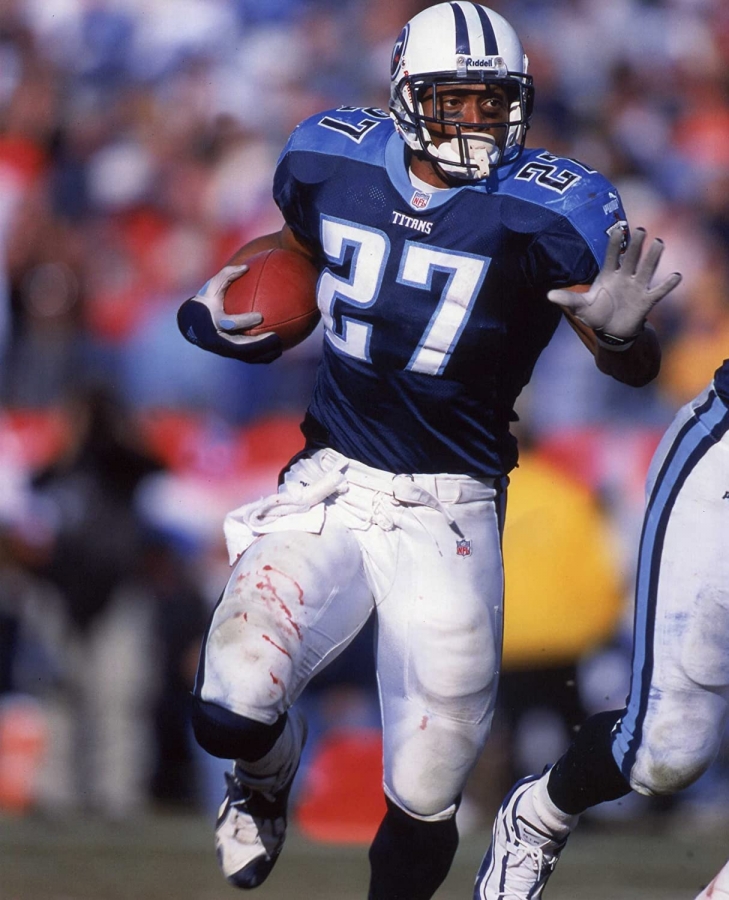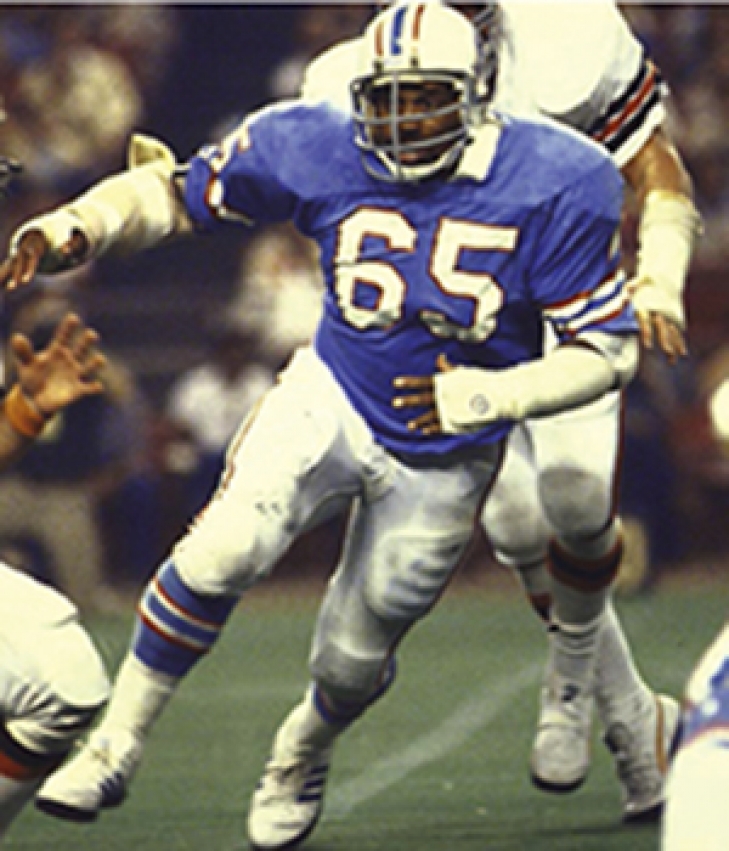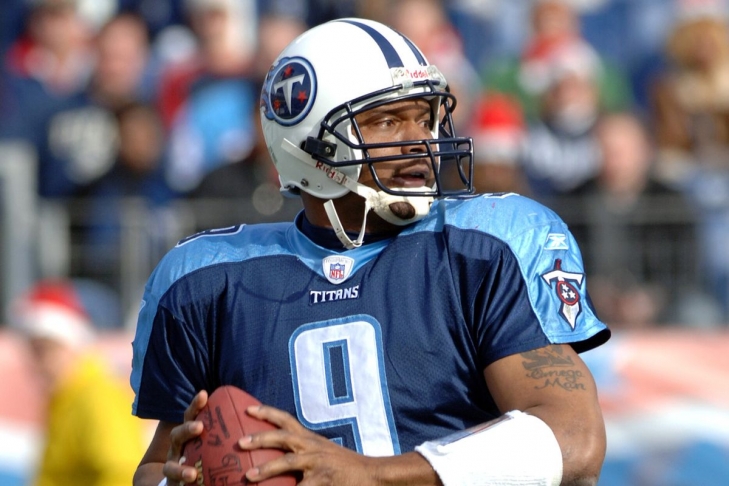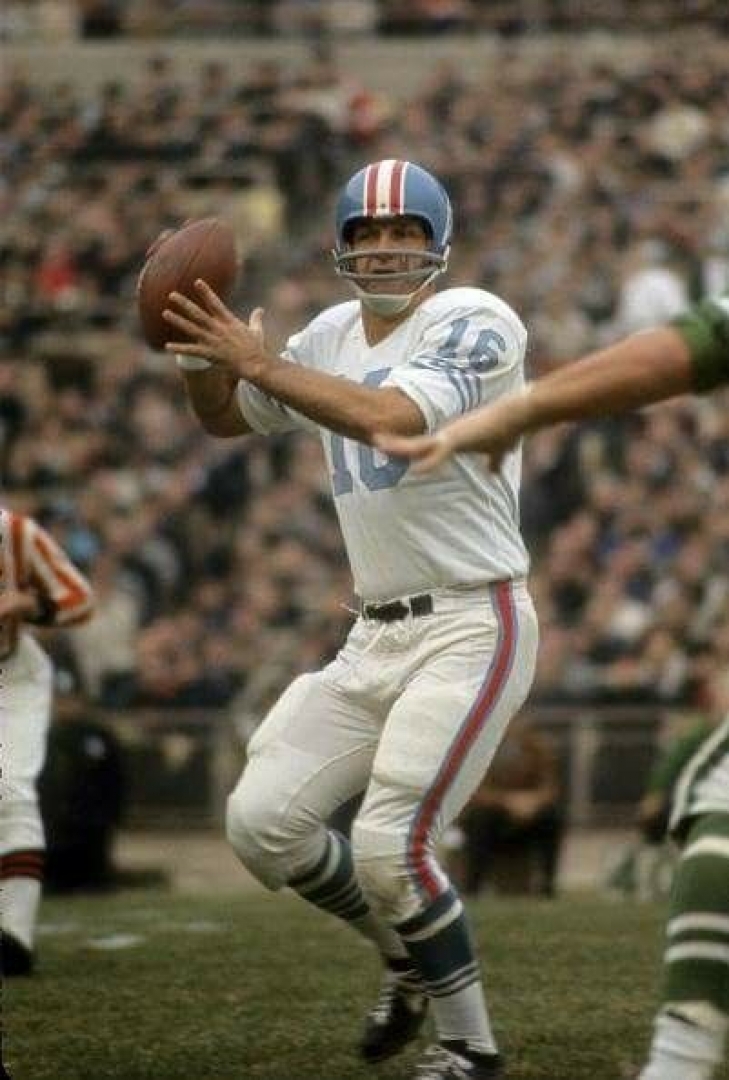
Committee Chairman
10. Eddie George
Eddie George broke out as an upper-end Running Back immediately as the former Ohio State Buckeye and Heisman Trophy winner won the Offensive Rookie of the Year Award in the last year of the Houston Oilers' existence (1996). That year, he rushed for 1,368 Yards, but that wasn't just the beginning; it was a pattern.
George relocated with the team to Tennessee, and the now named Titans inherited a star rusher. From 1997 to 2000, George was a Pro Bowl Selection, and the lowest yard tally he had on the ground was 1,294. His best year was in 2000, where he had a career-high 1,509 Rushing Yards, led the NFL in Touches (453), and was a First Team All-Pro for the first and only time.
While this was the end of George's Pro Bowl years, he still had plenty of production in him as he would accrue two more 1,000 Rushing Yard seasons before joining Dallas for one final year.
As a Titan, George had 10,009 Rushing Yards, 2,144 Receiving Yards with 74 Touchdowns. The orginazation retired his number 27 in 2019, 11 years after he entered their Ring of Honor.
8. Elvin Bethea
Taken in the Third Round in 1968, Elvin Bethea generated colossal value for the Houston Oilers, the only team that the star from North Carolina A&T ever played for in his 210 Games as a pro.
The powerful Defensive End would prove to be one of the top players at his position in the 1970s, going to eight Pro Bowls and recording 105 (unofficial) Sacks for his team. As good as Bethea was a pass-rushing, he was also a certifiable run stuffer, and thanks to his durability, he often did. Bethea did not miss a game until his tenth season (due to a broken arm), and his leadership on and off the field was also widely known.
The Oilers retired his number in the year he retired in 1983, and along with George Blanda, he was part of the first class of the Titans Ring of Honor in 1999. Bethea entered the Pro Football Hall of Fame in 2003.
7. Steve McNair
The University of Florida and other high-profile Division I programs coveted Steve McNair as a Running Back, but he wanted to play Quarterback, and he chose to play at Alcorn State in the SWAC. McNair’s belief in his ability as a pivot was correct, as he dominated the conference and was so good that he was a Heisman Finalist and won the Walter Payton Award as the top Division I-AA player in 1994. The Houston Oilers took him third overall in the draft, and they had no plans to use him as a Running Back.
McNair was a backup in his first two years and took over in 1997, the franchise's first in Tennessee. When the team was renamed the Titans in 1999, McNair led the team to the Super Bowl, a narrow loss as the St. Louis Rams stopped the Titan's last drive at the one-yard line. Nevertheless, McNair was considered a top Quarterback, and in 2003, he won the MVP and was the youngest player at the time to throw for 20,000 Yards.
A three-time Pro Bowler, McNair took the Titans to four playoffs. Still, issues with his contract and actions by the Tennessee (they would not let him rehab his injury during the offseason at team facilities fearing that an injury in the building would activate another year) led to his release. Injuries would, however, take him out of football two years later. McNair died tragically in 2009 at age 36, when he was shot and killed by a woman who was alleged to be his mistress.
In 2019, the Titans retired McNair’s number, 11 years after the organization inducted him into their RIng of Honor.
6. George Blanda
George Blanda played for George Halas’ Chicago Bears in the 1950s, but Halas used him more as a Kicker than Quarterback, and a frustrated Blanda retired after the 1958 season. When the American Football League formed, Blanda returned to the game, signing with the Houston Oilers, where he was able to prove that he belonged as a pivot all along.
Blanda was the Oilers Quarterback and Kicker for seven seasons, and he led the Oilers to the first AFL Championship. Blanda repeated that in 1961, but individually, he had his best year, leading the AFL in Passing Yards (3,330) and Touchdowns (36) while winning the MVP. An AFL All-Star that season, Blanda would be again in 1962 and 1963, the latter year winning his second Passing Yard Title.
Blanda threw for 19,149 Yards and kicked for another 91 Field Goals and 301 Extra Points as an Oiler.
He joined the Oakland Raiders after the 1966 season and played until his mid-40s, donning the pads for 26 total seasons.
Blanda was chosen for the Pro Football Hall of Fame in his first year of eligibility in 1981, and arguably it was on the strength of his accomplishments in Houston. He would be inducted into the Titans Ring of Honor in 1999.





